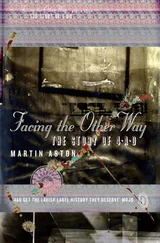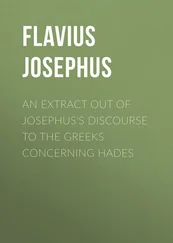“Really, Rupert—”
“Well, I’ve heard remarks made when she goes into bars in Casiope that I wouldn’t like anyone to make about Millie, that’s all. What that girl needs is a good spanking, if you ask me. And Dolly, of course, is the last person in the world to have any idea of imposing discipline. I’m not blaming her — it’s up to a father to impose discipline. Well, you can’t see Demetriou doing anything to keep the twins in order, can you? Even if he really were their father and not just a stepfather. No, it’s George Fairfax I blame. The twins are his children, after all — you’d think he’d take a bit of interest in the way they’re brought up.”
“He was anxious, I think, not to embarrass Dolly by interfering with her life after her marriage to Constantine — he’s very fond of her. Men do get fond of Dolly, you know.” She spoke without jealousy, but rather with a proprietorial pride in her sister’s attractiveness.
“No, really, Mama-in-law, it’s one thing being civilized about the divorce and so on, and another leaving his children to be brought up with no supervision and no discipline and running wild all over the place. And don’t think I’m saying this behind George’s back — I’ve said as much to his face. I don’t see all that much of him — he’s out of my league financially, and I’m the first to admit it — but when I do see him I speak my mind. I’ve even written to him. I happened to hear last summer that Lucian had got mixed up with an even more unsavory crew than usual, and I thought George ought to know about it. But he didn’t even bother to reply.”
“I had no idea,” said Jocasta, “that you felt so strongly.”
“I haven’t seen much of the twins since they left school, and I thought the adult world might have knocked a bit of sense into them. But they’re worse than ever. No standards, no manners, no respect for authority, no respect for anything. They lounge about making silly private jokes and giggling over nothing, not doing a hand’s turn of work, and sponging on Millie whenever they get the chance. They make me sick, and that’s a fact.” Rupert paused. “Sorry, I suppose I shouldn’t be talking like this — they are family, after all.”
“You did say,” said Jocasta, “that you wanted to talk about Millie.”
“Yes,” said Rupert. “Yes, that’s right.” He still seemed to have difficulty in coming to whatever might be the point. There was a further clinking of ice and hissing of soda.
“I had thought,” said Jocasta, “that you and Millie were getting along particularly well together during the past fortnight.” Her words provoked a melancholy sigh.
“So did I, Mama-in-law, so did I. Thought she quite enjoyed having her old dad about to squire her to restaurants and the casino and that sort of thing. Yes, I’ll admit it, I had the idea I’d got a pretty good relationship with my daughter. Until yesterday.” Another heavy sigh. “Shows how wrong you can be.”
“My dear Rupert, you astonish me. I thought that yesterday was delightful.”
“Well, it didn’t start too well from my point of view. The original idea, you remember, was for me to help Camilla sail the boat down to Gouvia and meet the rest of you in town for dinner. Then Dolly’s kids decide at the last moment that they want to come along for the ride, so bang goes my idea of having Millie to myself for the day. Still, they were off as soon as we’d moored at Gouvia — scared they might have to help with tidying the boat up, I expect. That’s when I remembered that Millie hadn’t signed that letter yet — you know, the one to Tancred about changing the investments. So I suggested perhaps she might like to sign it right away and let me bring it back to London with me. And do you know what she said? She said she’d have to think about it. That hurt, Mama-in-law, it hurt.”
Further cynical glances were exchanged on the balcony. “Really, Rupert, if that’s all that’s worrying you, I think you’re making far too much of it. She naturally wouldn’t want you to think her the sort of girl who signs things of that kind without thinking about them.”
“I’m her father, Mama-in-law — it’s pretty wounding to find she doesn’t trust me. Or doesn’t trust my judgment.”
“My dear Rupert, I’m quite sure that’s not at all what she meant.”
“Wasn’t it? You haven’t heard the whole story yet. I told her, of course, that she was entitled to think it over if she wanted to. Tried to make a joke of it — said I hoped she didn’t think her old dad would try to pull a fast one on her. To which she said no, of course not, but fifty thousand pounds was a lot of money and she didn’t want to do anything silly; she’d gathered that the business of the company was dealing in commodity futures, and she’d heard it could be a rather risky market. So I said I was very pleased to see her taking an interest in financial affairs and asked where she’d got her information. And do you know who she’d been talking to?”
“My dear Rupert, I have no idea.”
“That know-all little pansy Leonidas, if you please. Has an economics lesson once a week at his so-called public school, reads the Financial Times on Wednesdays and Saturdays and sets up as an expert on the Stock Market. The twins are bad enough, God knows, but at least they’re good British stock. But when I find that slimy, slithering little half-caste Levantine trying to turn my own daughter against me — well, I’m sorry, Mama-in-law, but I could wring the little pipsqueak’s neck for him.”
It was at this point that Julia sneezed. The pollen count was high, and the poor creature is susceptible to it.
“Rupert,” said Jocasta, “what was that noise outside?” Rupert stepped out on to the balcony. His mouth, when he perceived our presence, fell open under its drooping mustache; his watery blue gaze, as it passed from one to another of us, held much of surprise and little of delight. He seemed about to speak. With a smile of infinite complicity and infinite reassurance, Selena raised her forefinger to her lips and gently shook her head: it was a gesture, as I understood it, designed to suggest that our presence on Rupert’s balcony was in some way connected with aspects of his private life of which he might prefer his mother-in-law to remain unaware. After a moment of perplexity and hesitation, Rupert understood it in a similar sense: he withdrew from the balcony.
“It’s nothing, Mama-in-law — something on the towpath — my cleaning woman must have left the windows open.”
Properly regarded,” said Selena, as she settled in the driving-seat of her motor vehicle and prepared to drive us back to Lincoln’s Inn, “that all passed off rather well. I don’t say that Rupert was entirely satisfied with our explanation for being on his balcony; but at least he accepted it without the rather searching cross-examination to which we might have been subjected by Jocasta, had she still been present when we offered it.”
“We were obliged,” said Ragwort, “to tell a quite extraordinary number of lies.”
“My dear Ragwort,” said Selena, “whatever can you mean? We said that Julia had been invited to Rupert’s flat for a drink by his friend Rowena: that was true. We said that we had come to collect her and take her back to Lincoln’s Inn: that was true. We said that we were in some haste and must leave at once: that was entirely true. How can you possibly suggest that we told any lies?”
She elected not to cross the river by the bridge at Chiswick but to remain on the south side of it until we reached Hammersmith — a distance which she covered with such rapidity as to move me to remark diffidently on the possible existence of a speed limit.
Читать дальше












